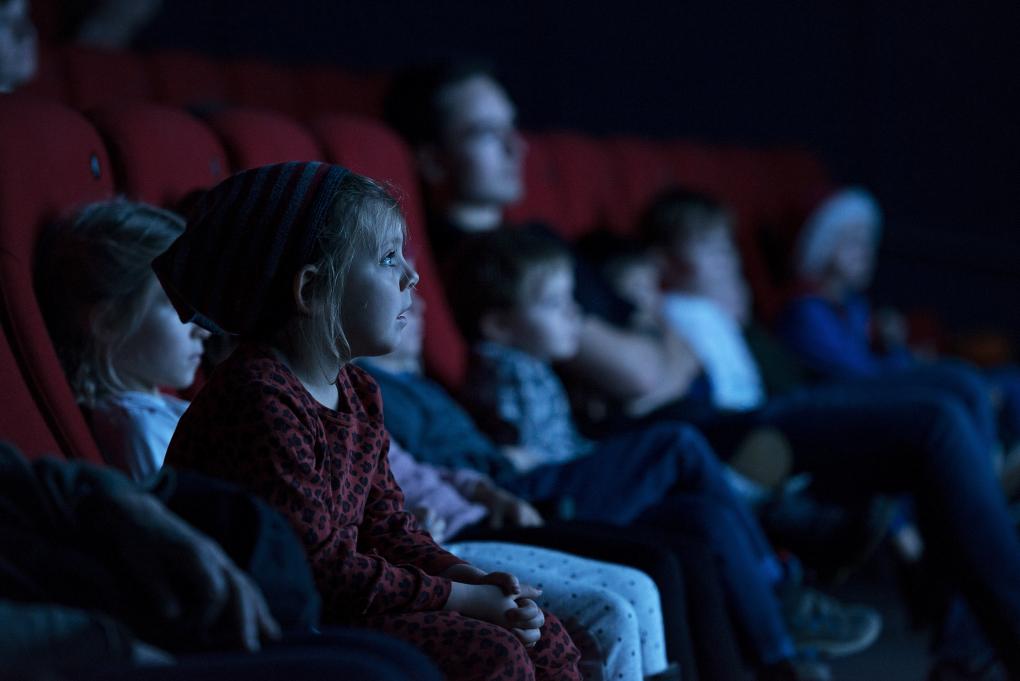"Although we look different, we must be nice to each other." The statement comes from a nine-year-old girl who has just seen 'Paddington' together with her class at the Cinematheque at the Danish Film Institute in Copenhagen. The girl is not the only one in the movie theatre to discover that the film is not just entertainment, but also has a message to tell.
"If someone comes from another country, treat them well," one of her classmates joins in about Paul King's tale of the iconic bear traveling from Peru to London in search of a home.
The two young moviegoers are, on this particular morning, with their class at the cinema in the context of a Danish-German-British research project exploring if films can contribute to dialogue and understanding among children with widely different backgrounds.
Wanted: know-how
The project, 'Film – A Language without Borders,' was launched this spring by the British Film Institute, Vision Kino in Germany and the Danish Film Institute, but saw its very first starting point in 2015-16 when large groups of migrants and refugees began to arrive in Europe, resulting in several countries putting an increased focus on integration.
The question of whether European film culture could play an active role in this process made the three partners take action, says Charlotte Giese, project manager at the Danish Film Institute.
"We all have solid experience in using films in education, but not specifically in relation to this big new group of children and young people in a European context. Could we make a difference in the process of integration? And how should we go about it?"
"That's the core of the project – to learn more about how we can use films to create inspiring collective experiences among children coming from many different countries and cultures. In a larger perspective, it's about exploring how film in general can form the basis for children to exchange views and ideas and for them to relate meaningfully to each other."
"In addition to screening films, we are talking to the children and their teachers, and we have researchers evaluating the results," says Charlotte Giese about the project, which is backed by EU and will be running until December 2018.
Going to the cinema
The young audience members at this morning's screening of 'Paddington' come mainly from classes consisting of newly arrived children of refugees or classes with a high proportion of children with other ethnic backgrounds than Danish.
"The children carry different kinds of emotional baggage. Films can be a good occasion to talk about topics that can be a hard to put into words. Some topics might be very specific about being a refugee, arriving for the first time in a new cultural context. But in general, the films we are showing involve universal themes that allow children to talk about what it means to grow up and find your own identity while having an understanding for those who are different from yourself," says Charlotte Giese.
"Of course, it's not a quick fix to integration," she emphasizes. "We're just using our experience from other educational projects – that watching films together gives children and young people a better starting point for discussion than if they're just sitting in class and talking about, for example, a text."
For many of the children in the test classes who have a different background than European, the actual cinema experience is also something very special.
"Many of them are not used to going to the cinema. For example, there was a boy at one of the screenings at the Cinematheque in Copenhagen who had put on his best suit, as it was his first time at the cinema. It was a big day for him – just like it's an exciting experience for many of the other children who have never been to a movie theatre."
Films that leave their mark
The films in the project range widely, but a common thread are topics of community, identity and tolerance.
There are films like Natasha Arthy's 'Fighter' and Stephen Daldry's 'Billy Elliot' about following your dream, Albert Lamorisse's short film classic 'The Red Balloon' about a special meeting, and finally Paul King's 'Paddington' with messages, according to the children this morning at the Cinematheque, such as "everyone is equal," "you have to treat others well" and "you can be a family even if you are different."
"Of course, it's a bit extravagant to claim that a single film can change anything, but films can at least give these children a chance to experience the world in new ways, through images, sound, visual poetry. We probably all remember that one major film experience we had growing up. Our hope is that the children through films might be affected and inspired and even puzzled, making them reflect about their lives. The most important thing is that the films leave their mark on them."
"Equally important are the teachers, because they are the ones to make sure that there is a good talk afterwards. We as institutions provide the films and study guides, but it is up to the teachers to make room for the following class discussions," says Charlotte Giese.
